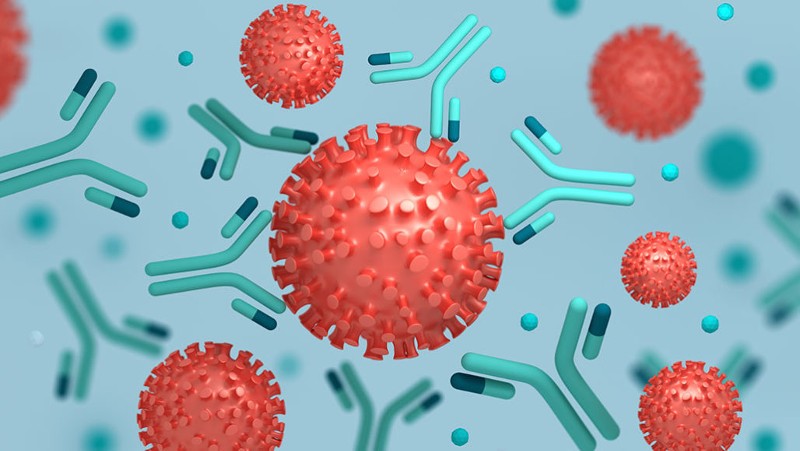
Bispecific antibodies have emerged as a revolutionary class of therapeutic agents in the field of medicine, offering the potential to target two different antigens simultaneously.
This innovative approach has gained significant attention in the medical and pharmaceutical industries due to its potential to enhance the precision and efficacy of treatments.
The global bispecific antibodies market has been witnessing substantial growth, driven by increasing research and development activities, rising prevalence of chronic diseases, and the demand for personalized medicine.
Bispecific antibodies, as the name suggests, are a type of antibody designed to target two distinct antigens. Traditional monoclonal antibodies target a single antigen, limiting their versatility in addressing complex diseases and conditions. Bispecific antibodies bridge this gap by binding to two different targets, such as a cancer cell and an immune cell, thereby enhancing the immune response against specific diseases.
The global bispecific antibodies market has experienced significant growth in recent years and is projected to continue its upward trajectory. Several factors contribute to this growth
Chronic diseases, including various forms of cancer, autoimmune disorders, and infectious diseases, have become a global health concern. Bispecific antibodies offer the potential to develop highly targeted therapies for these conditions, driving their demand.
The rapid advancements in biotechnology and genetic engineering have enabled the design and production of bispecific antibodies with greater precision and efficiency. This has expanded the possibilities for novel drug development.
The shift towards personalized medicine, which aims to tailor treatments to individual patient profiles, has created a demand for therapies that offer targeted and effective results. Bispecific antibodies fit well into this paradigm by offering highly specific and customizable treatments.
Major pharmaceutical companies are collaborating with smaller biotech firms to accelerate the development and commercialization of bispecific antibody therapies. These collaborations bring together expertise, resources, and innovation.
The applications of bispecific antibodies are vast and encompass various medical fields
Bispecific antibodies show great promise in cancer therapy. They can redirect immune cells to attack cancer cells directly, leading to enhanced tumor cell killing. This approach has the potential to revolutionize cancer treatment and improve patient outcomes.
In autoimmune diseases like rheumatoid arthritis and multiple sclerosis, bispecific antibodies can help modulate the immune response and reduce inflammation, offering a new avenue for effective treatment.
Bispecific antibodies can be engineered to neutralize viruses and bacteria by binding to specific viral or bacterial antigens. This approach holds potential in preventing and treating infectious diseases.
Bispecific antibodies are being explored for the treatment of blood disorders, such as hemophilia, by targeting clotting factors and facilitating blood clot formation.
Bispecific antibodies have emerged as a promising avenue in the field of cancer therapy. Their unique design allows them to target specific cancer cells while also engaging the body's immune system to mount an effective response against the tumor. This dual mechanism of action holds significant potential in improving the precision and efficacy of cancer treatments.
In the context of cancer, bispecific antibodies can be engineered to recognize tumor-associated antigens, which are specific markers found on the surface of cancer cells. These antibodies can then bind to these antigens, effectively marking the cancer cells for destruction by immune cells.
Additionally, bispecific antibodies can also engage immune cells, such as T cells, to directly attack cancer cells. This approach enhances the immune response against the tumor and boosts the body's natural defense mechanisms.
Bispecific antibodies show promise in various types of cancer, including leukemia, lymphoma, breast cancer, and lung cancer. Clinical trials are underway to evaluate their safety and efficacy, with some bispecific antibodies already gaining approval for certain cancer indications.
These innovative therapies have the potential to change the landscape of cancer treatment by offering targeted and personalized approaches that minimize damage to healthy tissues.
Inflammatory and autoimmune disorders arise from an overactive immune response, where the immune system mistakenly attacks the body's own tissues. Bispecific antibodies are being explored as a potential solution to modulate this immune response and restore balance in cases of such disorders.
The potential of bispecific antibodies in inflammatory and autoimmune disorders lies in their ability to intervene at the molecular level, addressing the root causes of these conditions. Clinical trials are ongoing to evaluate their safety and efficacy, with the aim of offering patients more effective and targeted therapies that can alleviate symptoms and improve their quality of life. As research in this area advances, bispecific antibodies could provide a new paradigm in managing these complex and challenging medical conditions.
While the potential of bispecific antibodies is promising, several challenges must be addressed
the global bispecific antibodies market is experiencing significant growth, driven by advances in biotechnology, the need for targeted therapies, and collaborations within the pharmaceutical industry. These innovative molecules hold great promise in revolutionizing treatments across various medical fields, including oncology, immunology, and infectious diseases.
In 2022, North America was the biggest market in the Global Bispecific Antibodies Market by Region, and it would remain the biggest market until 2030.
By 2030, the North American market would be worth $52 billion. Between 2023 and 2030, the Europe market will grow at a CAGR of 42.1%.
However, addressing challenges related to manufacturing, regulatory approval, and accessibility will be crucial to realizing their full potential in improving patient outcomes and shaping the future of medicine.